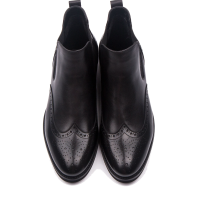It is impossible to imagine an elegant and confident man without a pair of good shoes. Stylish, and most importantly, correctly selected shoes will highlight your individuality and create a successful image.
We are ready to share the nuances of choosing the ideal men's pair of shoes, the golden rules for combining elements of a man's wardrobe, and finally tell you how Oxfords differ from Derbys.
Oxfords
The Oxfords we know are the result of the evolution of tight-fitting men's boots, popular in the 17th century, which were fastened with buttons. Year after year, these boots became shorter and shorter to suit new fashion. By the beginning of the 19th century, boots had finally turned into shoes and began to be very popular among Oxford students, hence the name of this model.
A special feature of these men's boots is the “closed lacing”, which connects the sides (tops) sewn under the vamp.
Although classic black Oxfords are usually worn with a tailcoat or tuxedo, recently these shoes are increasingly becoming part of an informal look.
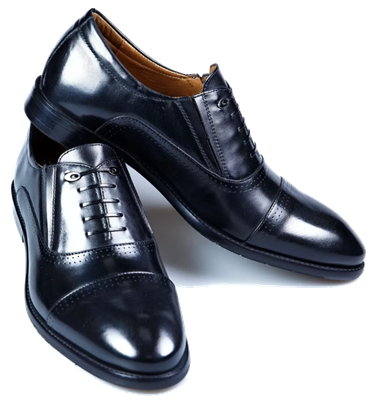
Derby
This type of shoe is characterized by “open lacing”, when the boots are sewn over the vamp. Untied laces allow the sides to move freely.
In England, these boots are better known as “bluechers”. According to legend, this model was worn by the soldiers of Prussian Marshal Blucher at the Battle of Waterloo.
Derby shoes are more of a casual shoe. You can combine black models with classic suits, and shoes of other colors will look great with jeans.
Casual shoes can often be decorated with patterns or perforations. This decor turns typical derbies into elegant brogues.
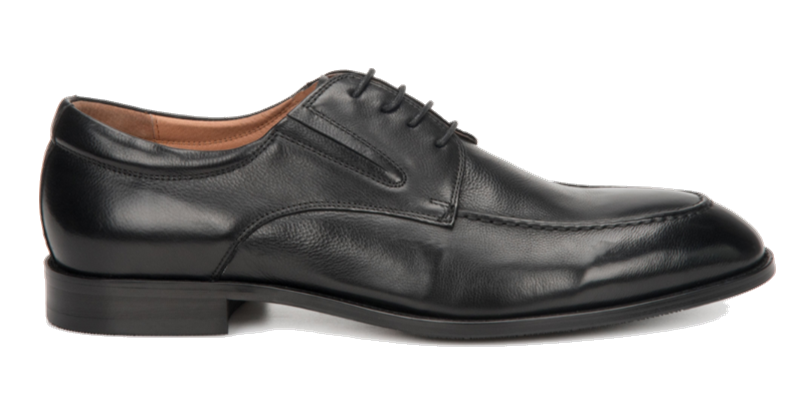
Brogs
In fact, this is not an independent style of shoe, but a type of decor. The presence of this openwork pattern has long been due to practical necessity.
Irish farmers already had holes in their boots to drain water as early as the 17th century. Holey boots quickly became popular among foresters, and then aristocrats. English golfers, following Prince Edward of Wales, often took to the course in shoes decorated with small holes at the beginning of the last century.
What should you wear with these shoes? The fewer perforations, the stricter the image. This rule also works in the opposite situation. Maximally decorated boots will go well with checkered jackets made of corduroy and tweed.
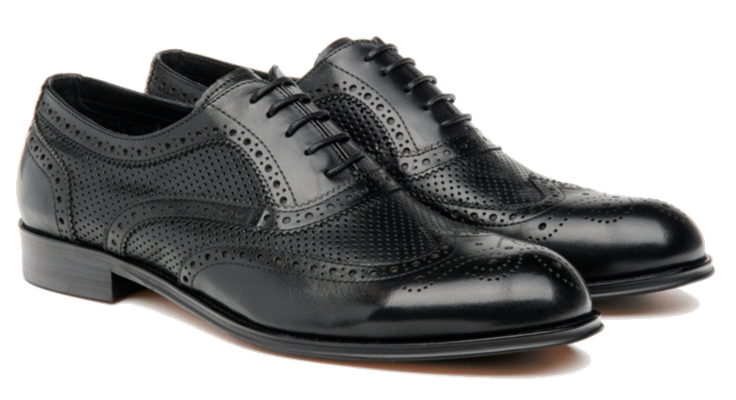
Monks
An elegant and attractive look can be created with slip-on shoes. Monks are classic buckled boots that look great with a formal suit. The boots owe their name to their resemblance to the shoes of English monks. "Monk's straps" can be made from various types of leather in various colors. These are versatile shoes that will look great with jeans and Italian-style trousers.
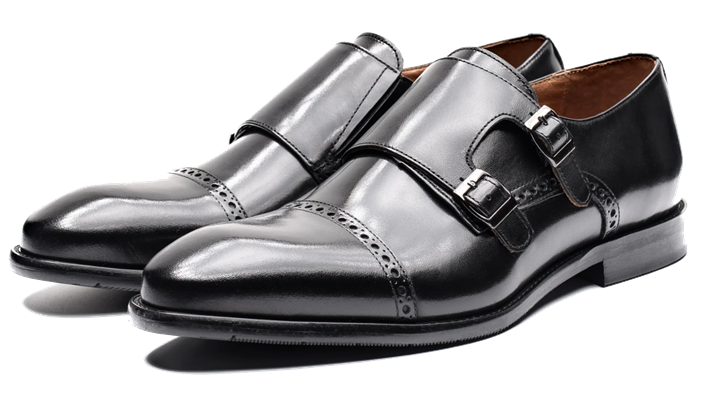
Moccasins
This type of men's shoes in various variations has been known to mankind for a long time. The North American Indians made similar shoes from soft suede-like rawhide. Modern moccasins are also most often made from soft leather or suede with a light sole.
These shoes are quite loose and informal, so moccasins will look out of place in combination with formal suits and tailcoats. Give preference to jeans, cropped trousers and clothes made from light fabrics.
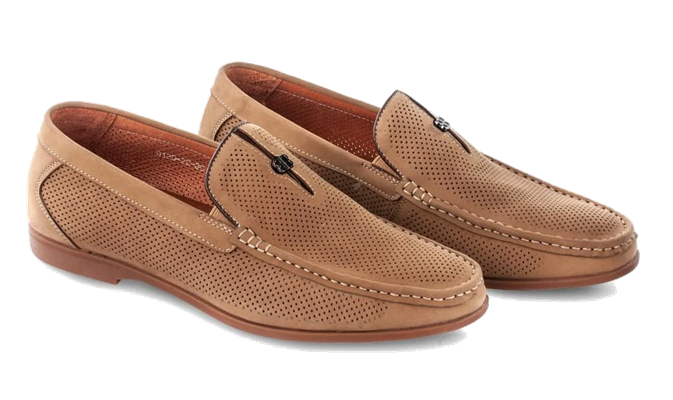
Loafers
This type of men's shoes resembles moccasins, but is distinguished by the presence of a fairly dense sole and a small heel. Small tassels are the most recognizable element of loafers.
The history of this shoe model is quite interesting. Loafers first became known as “Aurland moccasins” in 1930. This name became a reference to the traditional shoes of the peoples of Aurland. Having become popular beyond the borders of Norway, the shoes began to be produced in the USA in 1934 under the name familiar to us.
The small diamond-shaped strip of leather on the front has become the hallmark of loafers. In the 50s of the last century, American students began to use this structural feature of their shoes to stand out by inserting a coin into the slot. This is how penny loafers were born.
These shoes will complement your casual look and refresh your traditional office attire. The main condition for combining loafers and a formal suit – presence of socks.
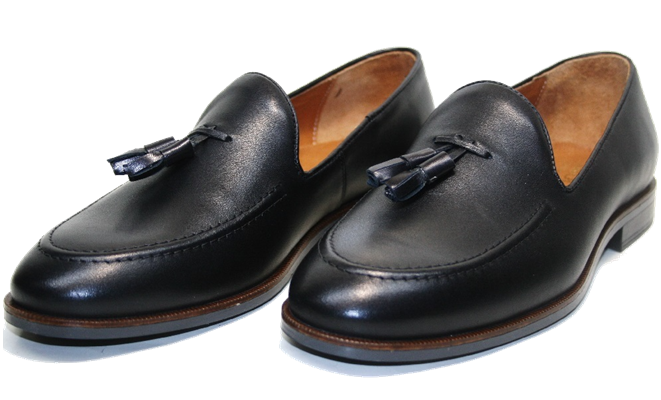
We hope you have received a comprehensive understanding of the main models of classic men's shoes.
0 reviews / Write a review
